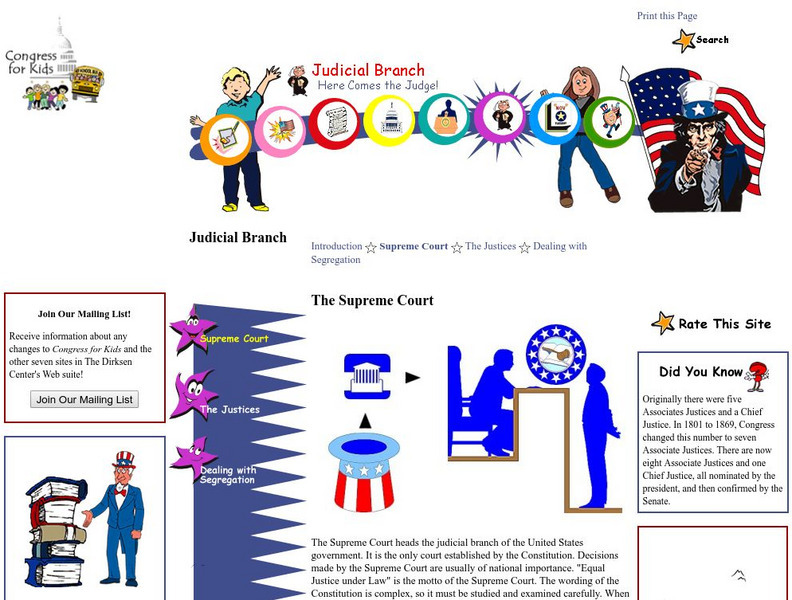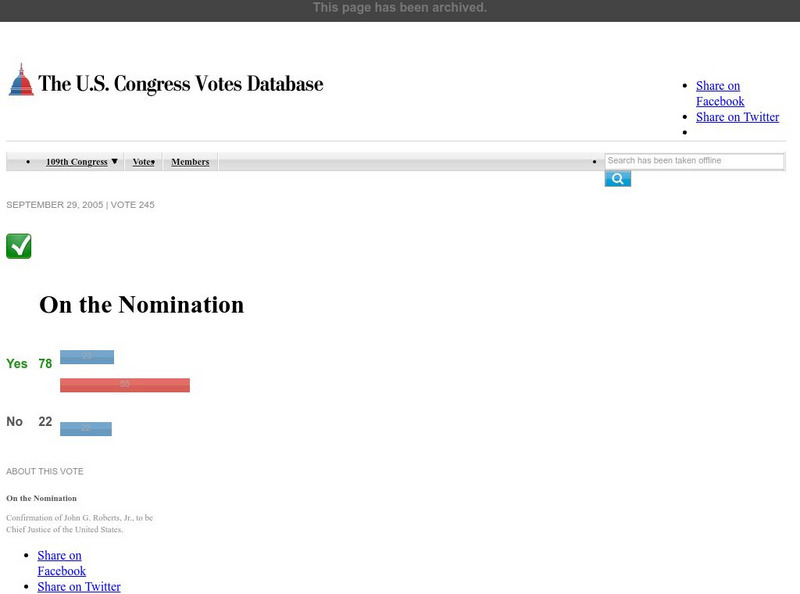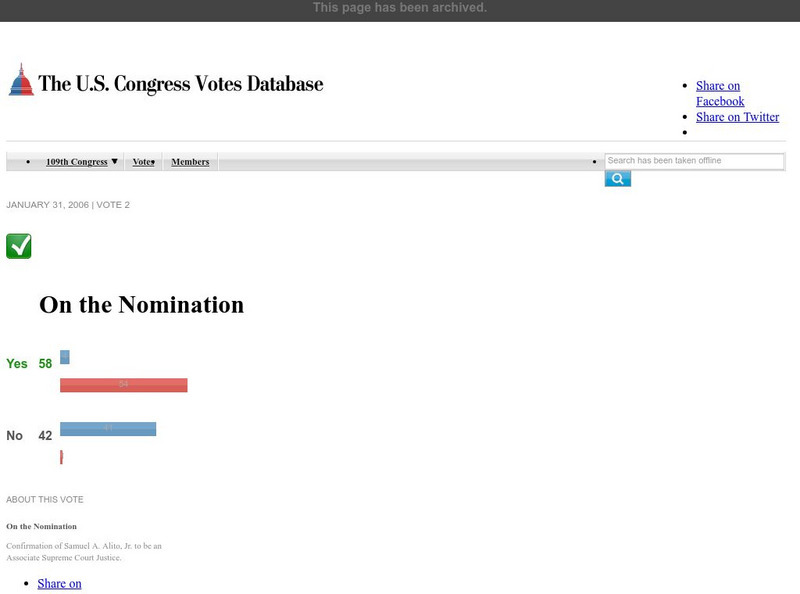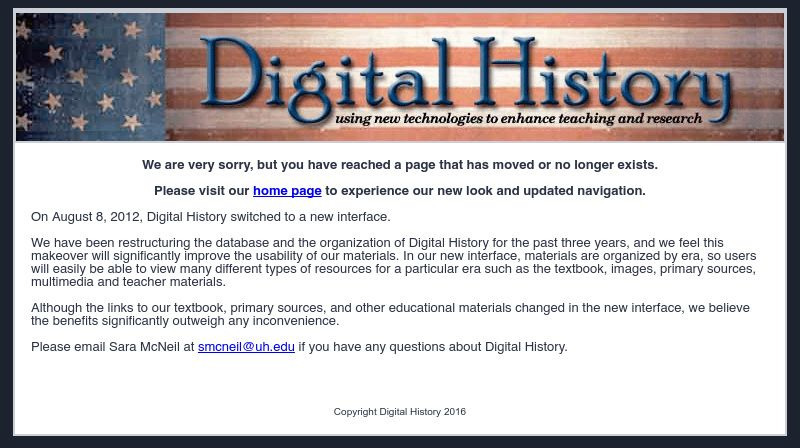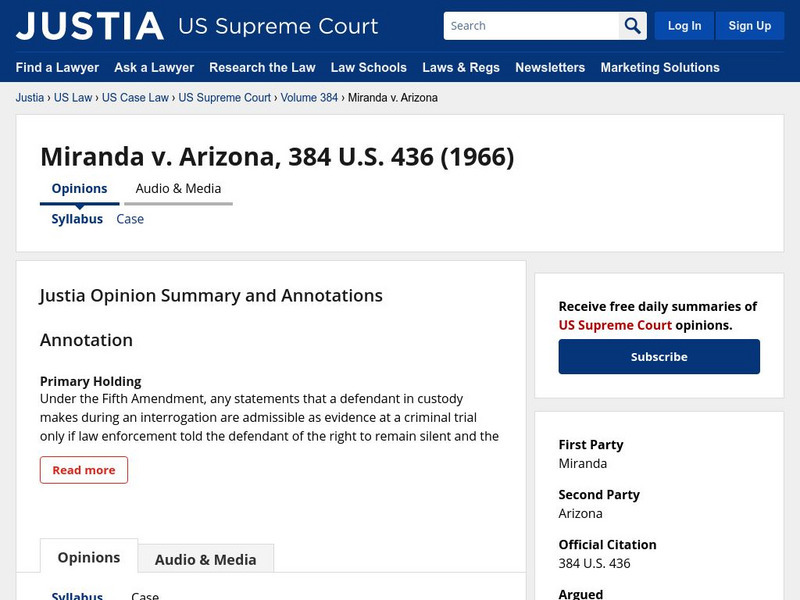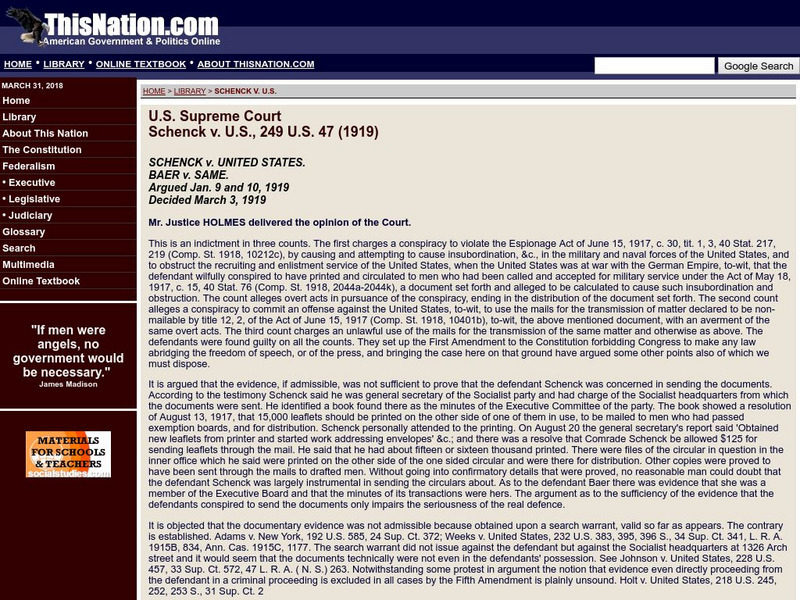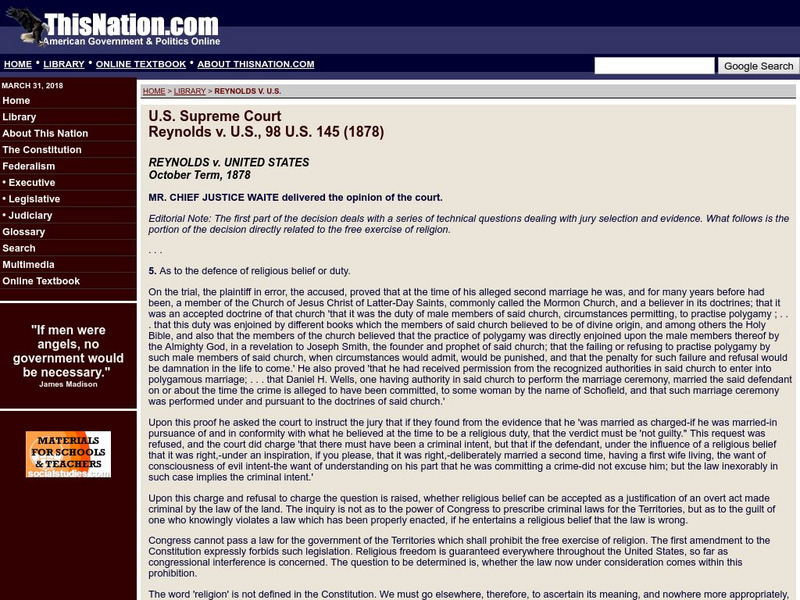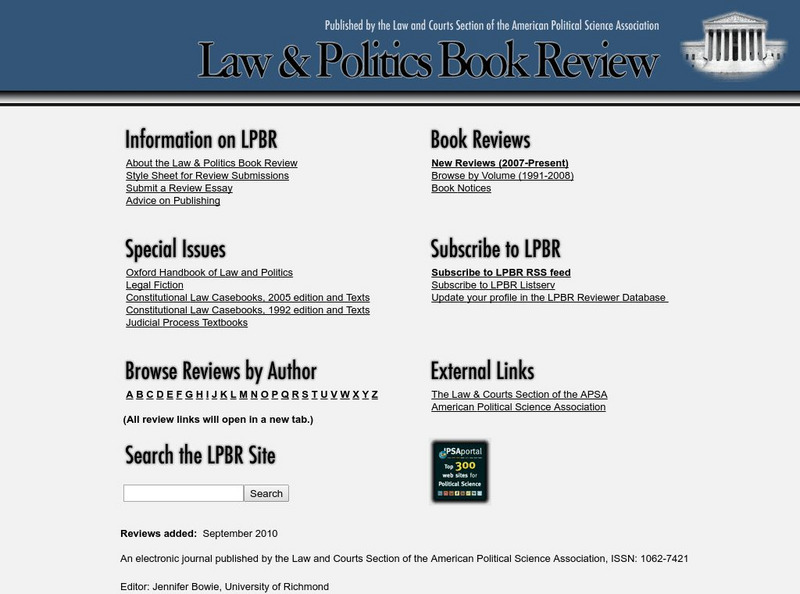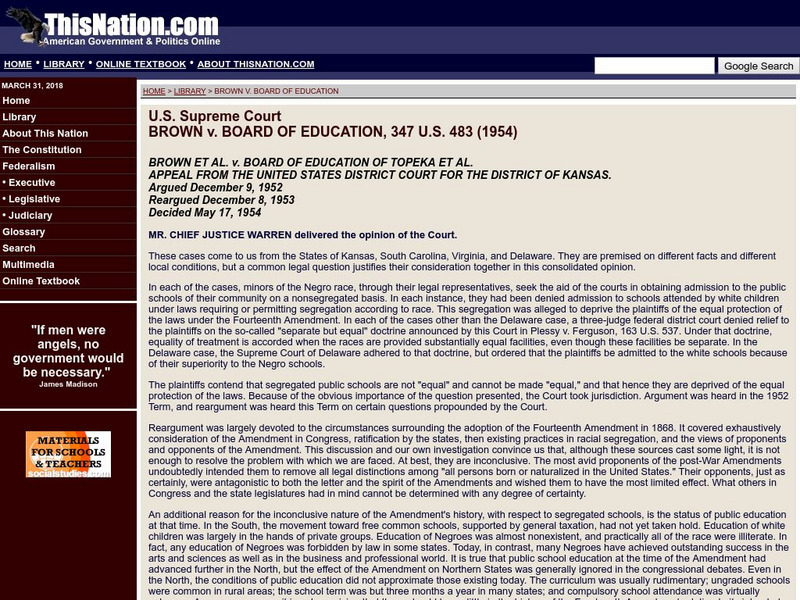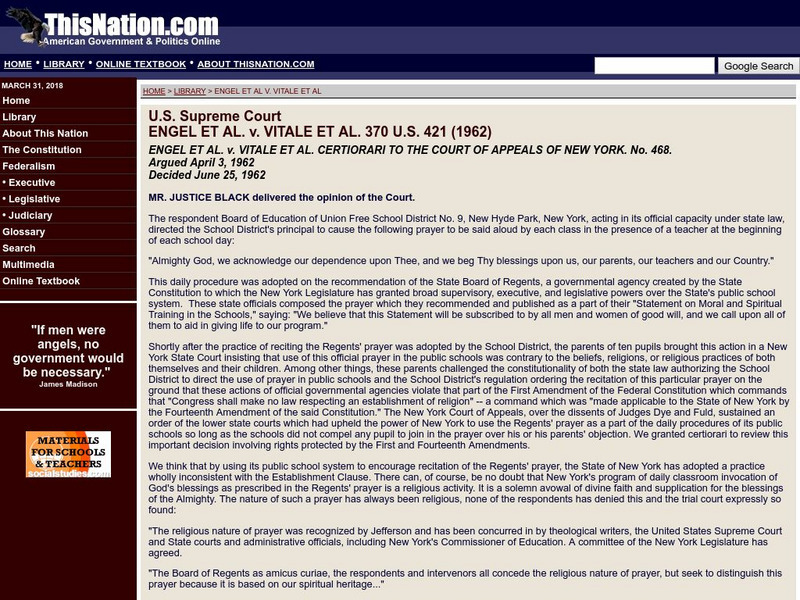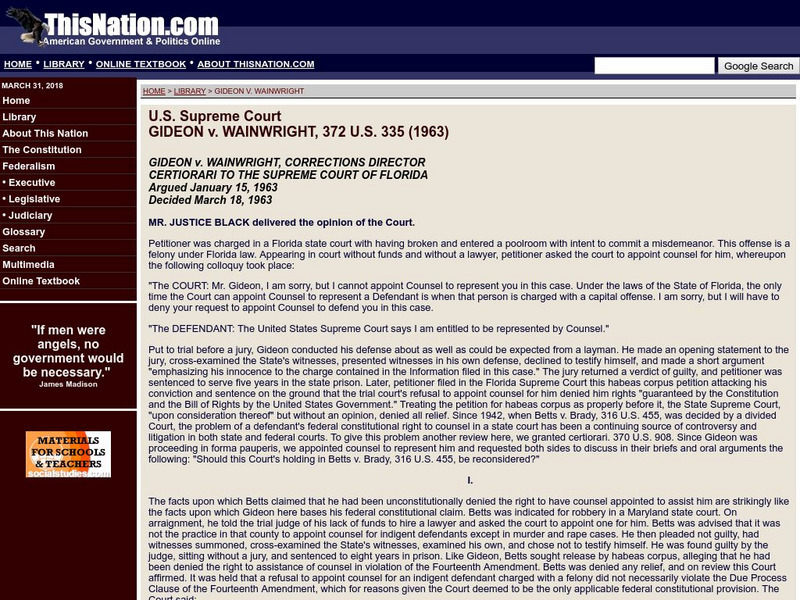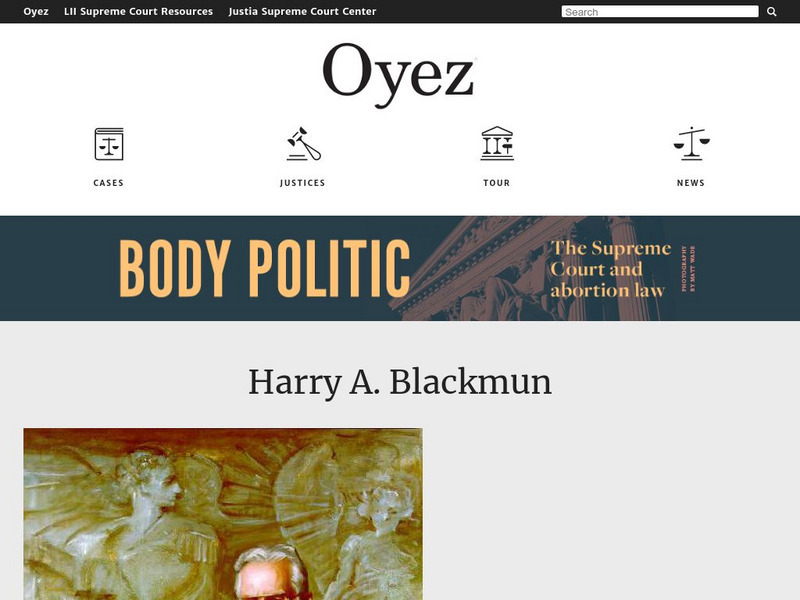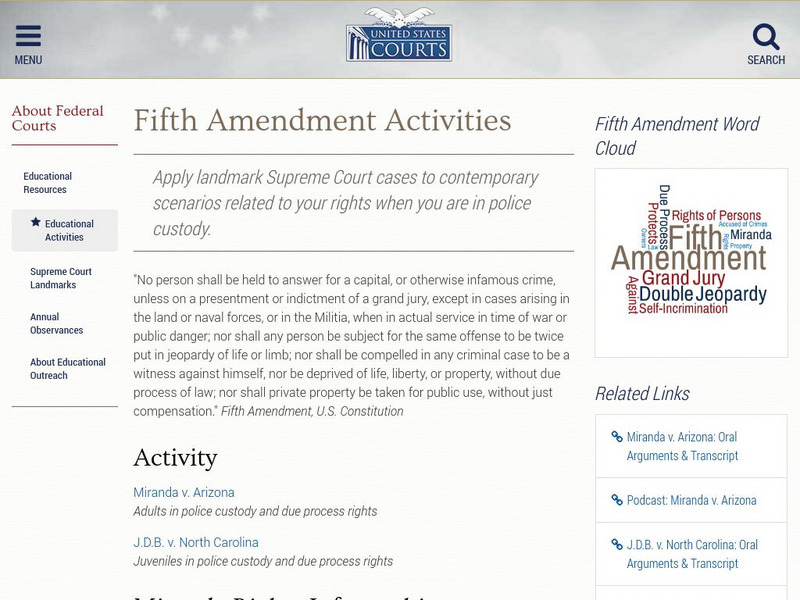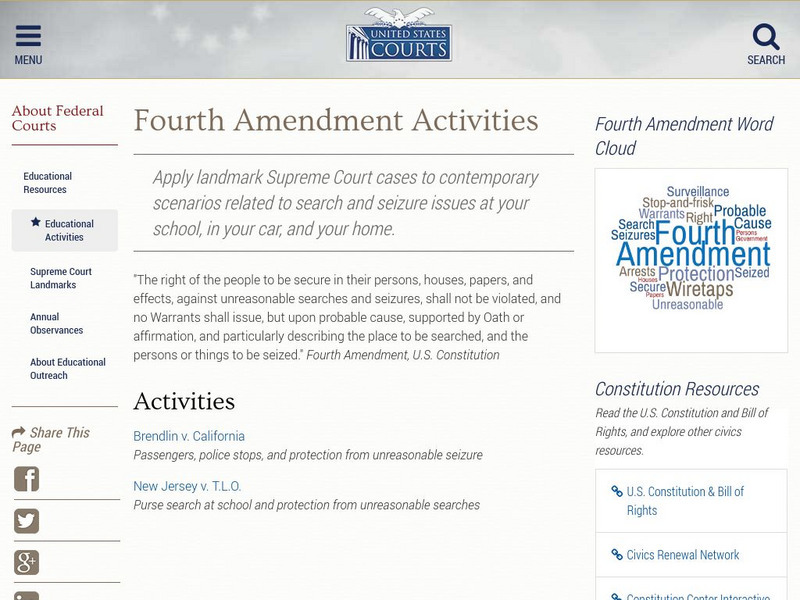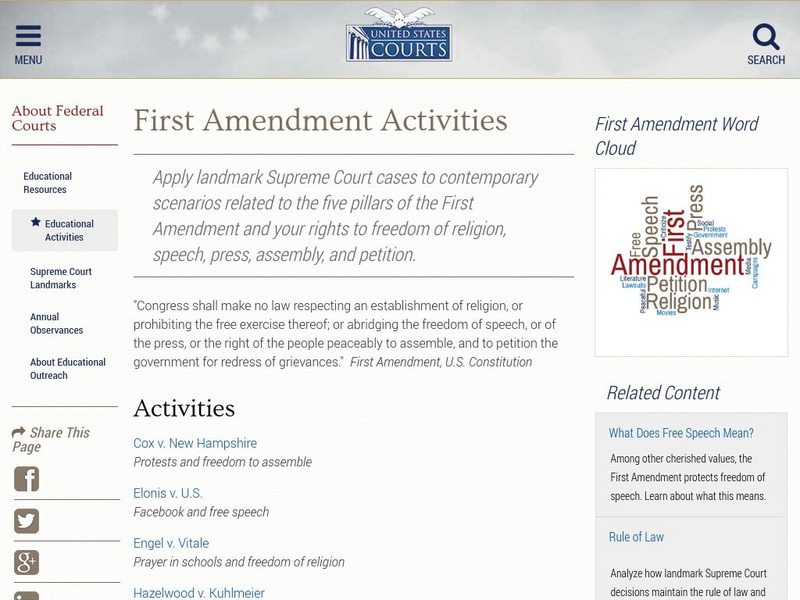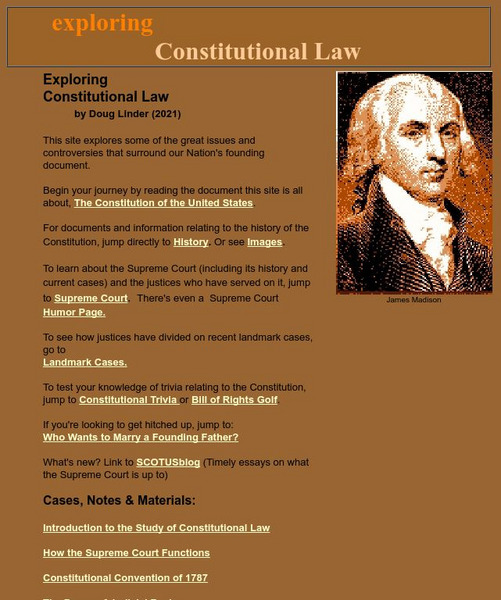Hi, what do you want to do?
The Dirksen Congressional Center
Congress for Kids: The Supreme Court
An overview of the Supreme Court: how it works, its role, people appointed to it, and more.
University of Groningen
American History: Documents: u.s. V. e.c. Knight and Co. 1895
View the complete text of the 1895 Supreme Court case of the United States v. E.C. Knight and Co. which concerned the Sherman Antitrust Act.
The Washington Post
Washington Post: Us Congress Votes Database: Senate Confirmation: John Roberts
Brief analysis of the confirmation vote on Chief Justice John Roberts to the Supreme Court. (2005)
The Washington Post
Washington Post: Us Congress Votes Database: Senate Confirmation: Samuel Alito
Brief analysis of the confirmation vote for Justice Samuel Alito to the Supreme Court. (2006)
Khan Academy
Khan Academy: Ap Us History Periods and Themes
This Khan Academy resource is a chart with major themes, documents, and key words for the AP US History exam. A major part of this resource provides explanations about how to approach each section of the AP US History Test.
Other
Find Law: Cases and Codes: Miranda v. Arizona (1966)
This resource provides information about the Supreme Court decision in the Miranda v. Arizona case.
Digital History
Digital History: Thurgood Marshall
Thurgood Marshall was one of the most important figures in the civil rights movement. In this biographical account, follow the steps of Marshall from his days as a law student at Howard Law School, to his victories as chief counsel for...
Other
U.s. Supreme Court: Miranda v. Arizona, 384 u.s. 436 (1966)
A complete and in-depth history of the 1966 U.S. court case of Miranda v. Arizona.
This Nation
This nation.com: Schenk v. United States (1919)
This site from ThisNation.com provides Justice Oliver W. Holmes, Jr.'s full text of the Supreme Court's decision in this landmark case.
This Nation
This nation.com: Reynolds v. United States (1878)
This site from ThisNation.com provides Chief Justice Morrison R. Waite's full text of the Supreme Court's decision in this landmark case.
Other
Unt: Deciding to Decide, the Law and Politics Book Review
This informative review of "Deciding to Decide: Agenda Setting in the United States Supreme Court" by H.W. Perry, Jr. describes the process of Supreme Court case selection.
This Nation
This nation.com: Mc Culloch v. Maryland (1819)
This site provides John Marshall's full text of the Supreme Court's decision in this landmark case.
This Nation
This nation.com: Brown v. Board of Education (1954)
This site from ThisNation.com provides Chief Justice Earl Warren's full text of the Supreme Court's decision in this landmark case.
This Nation
This nation.com: Engel v. Vitale (1962)
This site from ThisNation.com provides Justice Hugo Black's full text of the Supreme Court's decision in this landmark case.
This Nation
This nation.com: Gideon v. Wainwright (1963)
This site from ThisNation.com provides Justice Black's full text of the Supreme Court's decision in this landmark case.
Illinois Institute of Technology
Oyez Project: Harry A. Blackmun
Links to biography, family and appointment information and to cases in which he participated while on the Supreme Court.
Other
Us Courts: Fifth Amendment Activities
Two activities and lesson plan apply landmark Supreme Court cases on the Fifth Amendment and the right to due process or fair trial for adults and juveniles accused of a crime.
Other
Us Courts: Sixth Amendment Activities
Activities for the classroom in which students apply landmark Supreme Court cases to contemporary scenarios related to the right to counsel and right to a fair trial. With plan for teachers, word bank, and links to related resources.
Other
Us Courts: Fourth Amendment Activities
Activities for the classroom on the 4th Amendment in which students apply landmark Supreme Court cases to contemporary scenarios related to search and seizure issues at school, in the car, and the home. With lesson plan and links to...
Other
Us Courts: First Amendment Activities
Activities for students that make learning about the 1st Amendment relevant by applying landmark Supreme Court cases to contemporary scenarios related to the five parts of the First Amendment and rights to freedom of religion, speech,...
Khan Academy
Khan Academy: Ap Us History: 1865 1898: The South After the Civil War: Jim Crow
Explains how Jim Crow laws came to be created in the South and what it meant for African Americans. Discusses the Plessy v. Ferguson Supreme Court case, how its decision was eventually overturned, and the events that brought an end to...
Khan Academy
Khan Academy: Us History: 1945 1980: Brown v. Board of Education of Topeka
Learn about the Supreme Court ruling that outlawed school segregation in the United States.
University of Missouri
Exploring Constitutional Conflicts: Exploring Constitutional Law
Although the Constitution is the supreme law of the land, its interpretation is open to many opinions, causing great controversies. Students can read the Constitution as well as the many issues that surround the document. If that proves...
National Constitution Center
National Constitution Center: Interactive Constitution
This is a wonderful way to explore the US Constitution. The actual text of the Constitution comes first, then an excellent explanation of the text follows. In addition, most of the Amendments have essays by scholars on opposing sides of...





